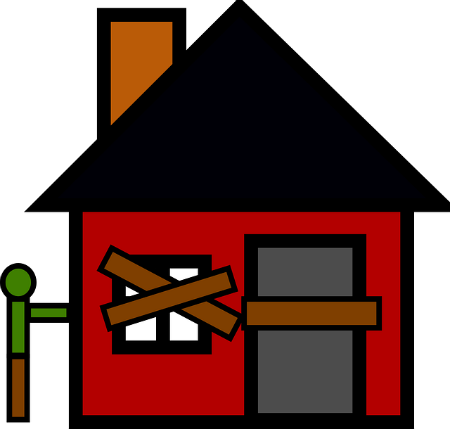Why You Should Invest in REO Homes
Purchasing REO homes is often showcased as an investors doing a favor for the bank, by taking the property off their hands. While this may be the case sometimes, there is usually a lot of hard work and diligence required in this process – so make sure to keep your eyes and ears open every step of the way.
The term REO (real estate owned) is used to describe properties which have been foreclosed upon, but have failed to sell at an auction, thereby ending up in a lender or bank’s portfolio. The bank or lender legally repossesses the property, listing it as an REO and categorizing it as an asset.
Why not just buy a home at auction?
In a typical foreclosure auction, the opening bid for a property will include the balance on the note, the interest accrued, lawyer fees and any other costs of the actual foreclosure process. Because the bids are usually higher than the current market value of the property – and because buyers must have a cashier’s check in hand for the full amount of their bid – investors are rarely interested in these types of sales.
Unlike buying the same property at a foreclosure auction, REO properties come free of liens or other encumbrances. Lenders will usually negotiate with the IRS to get rid of all liens or claims against the property before putting it back up for sale. Therefore, things like a second or third mortgage, liens attached by creditors and mechanics liens are all wiped out.
How do I find an REO home to buy?
Finding someone who can Sell a home without a Realtor is not difficult at all. Find someone who can do this on behalf of you. Finding REO listings may be the easiest part of the investing process – not only are there websites dedicated solely to these listings, you can also go to the lender themselves for more information.
Keep in mind, however, that each lender has their own set of rules and requirements on how they sell their REO properties. When you find a property you like, your best bet would be to contact the lender directly to see what their requirements are. Some questions you should ask include:
Are there any inspection reports?
What work has the bank agreed to?
How long does it take the bank to accept an offer?
How do I bargain for the absolute lowest price?
Remember that the bank or lender wants to get the best price possible on their property, and they aren’t interested in just getting rid of real estate cheaply. It is possible you’ll get a great bargain, but don’t assume this will be the case.
In fact, be prepared to receive a counter offer to your original offer – but of course, keep a close eye on the new price you’ll be paying. Make sure that it is still comparable to the other homes in the neighborhood. And, always take into consideration the costs of any repairs and renovations you may want to make. Don’t get caught up in a bidding war – never be afraid to walk away from a property.
How are repairs handled in the transaction?
It’s important to bear in mind that most banks want to sell their REOs in ‘as is’ condition, but this doesn’t mean you can’t try to negotiate. Any offer you make should include an inspection contingency period that allows you to back away from the sale if an inspections reveals serious damages. That said, always give the bank an opportunity to either make those repairs or give you a credit towards handling them yourself. It doesn’t happen often, but it never hurts to ask.
As with most investments, an REO purchase can have its share of pros and cons – but your best chance for success always comes from doing your homework!
Attn: New & Experienced Real Estate Investors – The Rules have Changed!
Conquer the Market with the Absolute 5 Best Strategies Out There and How to Automate your Real Estate Buying and Selling System!
 Subscribe to our podcast
Subscribe to our podcast 

